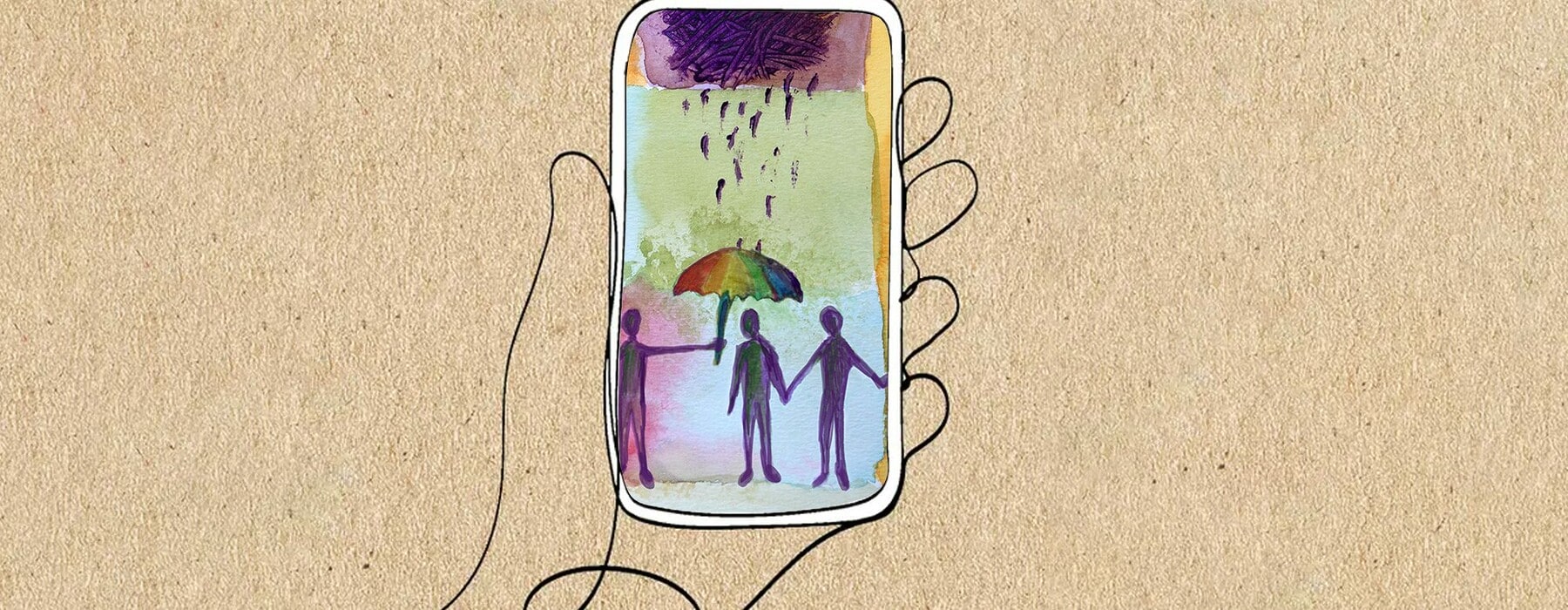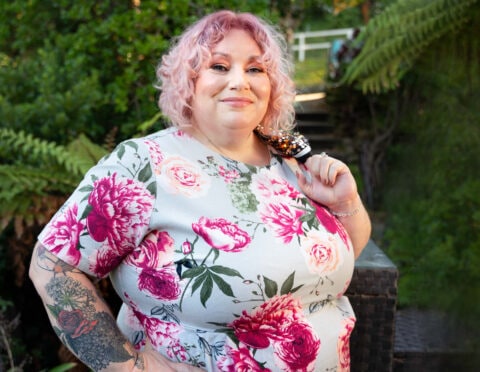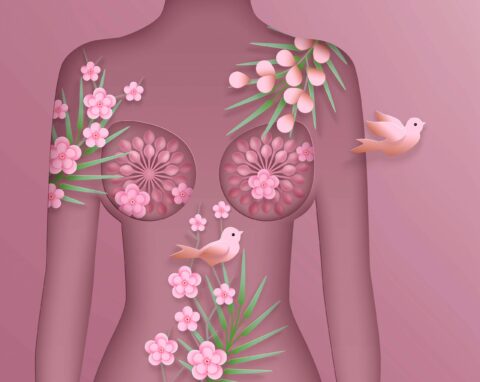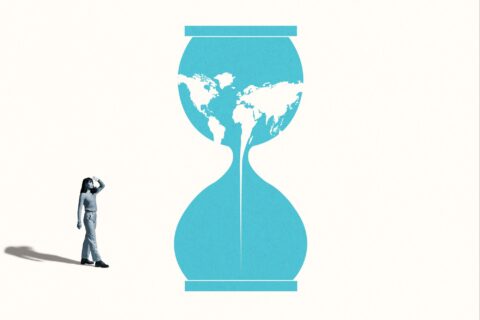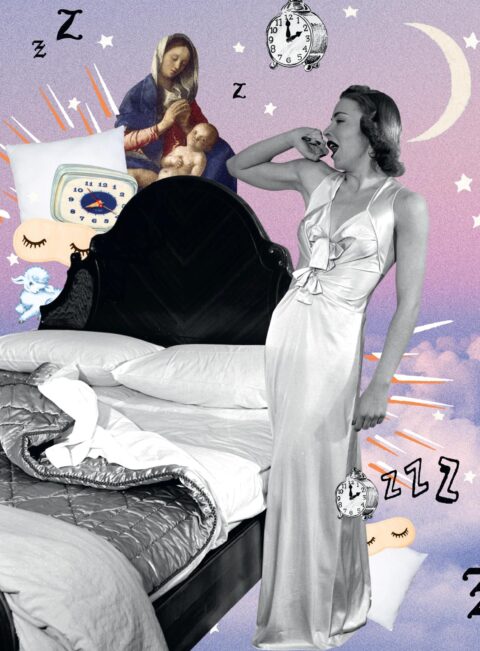Social media influencers might have cut the stigma around mental illness, but Jacqui Maguire says there’s a risk they might lead people to think they need a medical diagnosis for life’s inevitable ups and downs.
Dr Google has been a familiar companion (whether helpful or not) to those looking for information about their health over the last decade.
However, when it comes to mental health queries, it seems there are few new kids on a the block. TikTok, Reddit and Twitter are delivering mass messaging and (mis)information via influencers and algorithms. To date, #ADHD and #anxiety have a combined 13.1 billion views on video-sharing platform TikTok. Autism, gender dysphoria and trauma are also common trending topics.
Unlike Dr Goofle, where you actively search your symptoms, social media sends content directly to you. This means you are more likely to passively and repeatedly come across content you weren’t actually looking for.
A typical video of this kind shows a person talking, with a large text bubble above their head: “Things you didn’t realise could be ADHD symptoms.” The narrator recites a list of “ADHD symptoms”, from being hyper-focused on your topic of interest, to rapid eye blinking or struggling to get up in the morning. While some symptoms may appear on an ADHD diagnosis list, many so-called “symptoms” are generic behaviours we may all experience.
The exponential rise of social media as a “mental health awareness and diagnosis tool” has sparked intense public and professional debate. Helpful or dangerous? Accurate or not?
In the pro column, it could be said that social media is helping raise awareness about a topic that has previously been associated with stigma and shame. Those willing to openly share their experiences in such an accessible way may help shed light on conditions that have been under-recognised for generations. For example, it appears women have been consistently underdiagnosed with ADHD and autism.
Given knowledge is power, does this increased exposure arm patients with information needed to navigate our health system and access support they genuinely need? Furthermore, online communities, such as Facebook groups, can provide a global support network that may be otherwise unavailable, helping to normalise someone’s experience.
On the other hand, mental health is complex.
A simple symptom checklist does not paint the whole picture, nor does it determine the best treatment pathway. As one colleague stated: “The diagnostic instruments we use are not a recipe book and online information acts as a recipe guide, which is misleading at best. Psychology is both an art and a science, not an algorithm.”
Social media doesn’t have reputable quality control. It would be good if online information came with a disclaimer that it is not a replacement for proper assessment to decide on appropriate treatment.
While some influencers may have the credentials to back up their content, most don’t. It is likely many consumers do not research the background of the content generator, and prefer the information of peers to experts. The result is that many New Zealand psychologists are experiencing a surge in self-referrals, adding to already overloaded private and public systems.
Also, while psychologists acknowledge that social media has helped some people get an accurate diagnosis, they say many people are seeking a diagnosis for general life challenges that don’t actually have a corresponding “label” to go with them.
As a colleague pointed out to me recently: “Instead of ordinary shyness, people diagnose social phobia; instead of ordinary nerves, people are keen on fancy-sounding anxiety diagnoses; instead of ordinary grief at loss and break-ups, people want depressive diagnoses. We need to reclaim melancholy, sadness, shyness, nerves, butterflies, and savour the feelings we have when we find ordinary ways to manage those things – by sobbing on a friend’s shoulder, being kind to others, going for a fast run – not getting het up about trying to see doctors and psychologists.”
This disconnect between social media and experts’ messaging has also begun to undermine the trust some New Zealanders have in the medical profession. If people feel frustrated that professionals won’t accept what they see on social media, that may prevent them from seeking help when they really need it. Constant criticism places further strain on a heavily overloaded health system.
The core question is why people are turning to uneducated strangers on social media for medical advice. We’ve raised awareness about mental health, but has the public system generated the resources to support this? Human beings are information seekers and feel comforted when they find others like them.
If consistent, accurate and helpful mental health awareness campaigns were nationally delivered, would there be less need to turn to the online world? If resilience skills, such as learning to manage and respond to your emotions, were woven through the school curriculum and reinforced in national campaigns, would people tolerate life better and have less need for professional support?
For now, though, my advice is to slow down and carefully consider what you see online and use it as a starting point only.
If you’re feeling down or overwhelmed you can call or text 1737 any time, 24 hours a day to talk (or text with) a trained counsellor for free.
How to navigate mental health content on social media
- When you come across content discussing mental health on your feed, stop and ask yourself what you are being exposed to, and whether you want to engage with it? Remember that, even though you cannot control social media algorithms (and the content that is fed to you), you can control whether you read and watch what’s there.
- Investigate the source of the content. Is the content creator/influencer credible? While you may find personal accounts of mental illness interesting, it’s important to only gather the facts from health professionals (doctors and clinical psychologists).
- Remember that mental health is not a cookie-cutter diagnosis. Even though every mental illness has a list of symptoms, diagnoses are far more complex. For example, symptoms can indicate various diagnostic possibilities, severity is key along with the impact symptoms have on your daily life. Therefore, it’s important to use online information as the beginning of an investigative process, rather than an end point.
- Avoid diagnosing other people with the information you see online. For example, it’s unhelpful to say: “I think my mother has borderline personality disorder.”
- If you are struggling, always seek professional support. Your local GP is a good first port of call.

